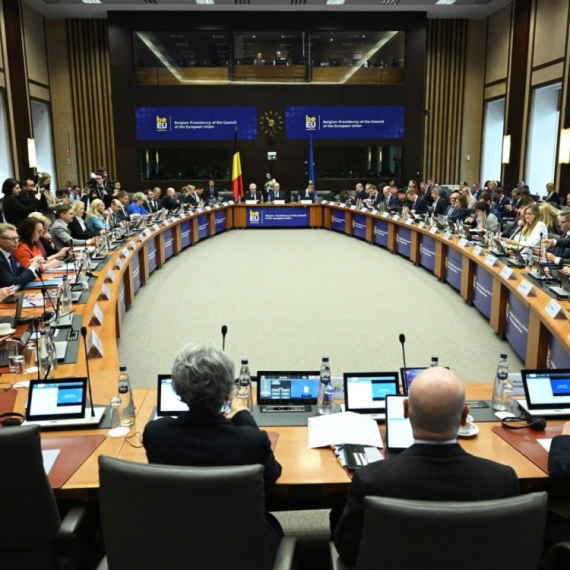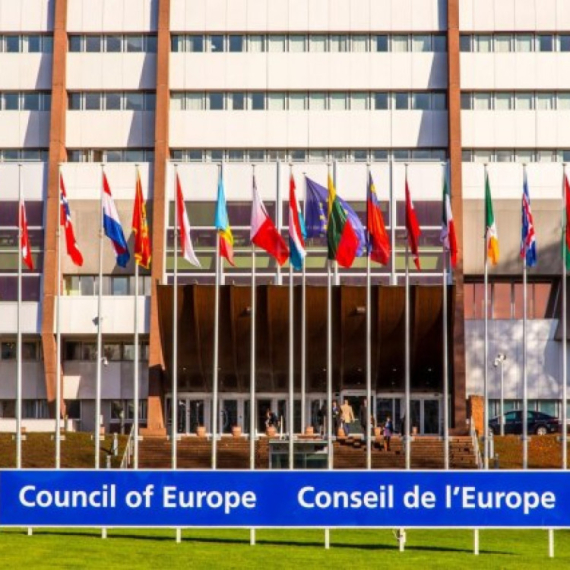"Pro-European govt. cannot adopt anti-European law"
A pro-European government cannot remain in office by adopting an anti-European law, a forum in Novi Sad heard.
Tuesday, 18.08.2009.
09:52

A pro-European government cannot remain in office by adopting an anti-European law, a forum in Novi Sad heard. This is "especially the case since that law is also contrary to Serbia's Constitution," was one of conclusions of a public debate on the proposed changes to the Information Law, organized by the Association of Journalists of Serbia (UNS). "Pro-European govt. cannot adopt anti-European law" UNS President Ljijana Smajlovic urged MPs of both the ruling coalition and opposition to vote against the bill, adding that UNS members will gather in front of the Serbian parliament on August 31 if it does hold the voting session on that date as scheduled. Smajlovic expressed hope that the bill will not be adopted, as a pro-European government cannot maintain itself in office by adopting an anti-European law. A better guarantee for maintaining the government in power would be that it admits that it has made a mistake and withdraw the bill, she said. Should the bill be adopted anyway, the largest party in the ruling coalition – the Democratic Party – will be accountable, rather than G17 Plus which proposed the bill, Smajlovic emphasized. Belgrade's Faculty of Political Science professor Rade Veljanovski said that the draft was not harmonized with the either the Constitution or the European Convention of Human Rights. He also told the forum that this government will "compromise Serbia heavily in front of the whole world". Veljanovski wondered which working group drafted the document, "and on whose orders". He conceded that some media in Serbia were doing a poor job, often violating norms of ethics, but stressed they cannot be shut down the way the changes to the law envisage. "Clearly they [government] wish to create a media scene where no one will poke around their institutional responsibility. This is the most serious moment in Serbia's media sphere since October 5, 2000," Veljanovski said, in reference to the date when the regime of Slobodan Milosevic was brought down.
"Pro-European govt. cannot adopt anti-European law"
UNS President Ljijana Smajlović urged MPs of both the ruling coalition and opposition to vote against the bill, adding that UNS members will gather in front of the Serbian parliament on August 31 if it does hold the voting session on that date as scheduled.Smajlović expressed hope that the bill will not be adopted, as a pro-European government cannot maintain itself in office by adopting an anti-European law.
A better guarantee for maintaining the government in power would be that it admits that it has made a mistake and withdraw the bill, she said.
Should the bill be adopted anyway, the largest party in the ruling coalition – the Democratic Party – will be accountable, rather than G17 Plus which proposed the bill, Smajlović emphasized.
Belgrade's Faculty of Political Science professor Rade Veljanovski said that the draft was not harmonized with the either the Constitution or the European Convention of Human Rights.
He also told the forum that this government will "compromise Serbia heavily in front of the whole world".
Veljanovski wondered which working group drafted the document, "and on whose orders".
He conceded that some media in Serbia were doing a poor job, often violating norms of ethics, but stressed they cannot be shut down the way the changes to the law envisage.
"Clearly they [government] wish to create a media scene where no one will poke around their institutional responsibility. This is the most serious moment in Serbia's media sphere since October 5, 2000," Veljanovski said, in reference to the date when the regime of Slobodan Milošević was brought down.

























































Komentari 3
Pogledaj komentare